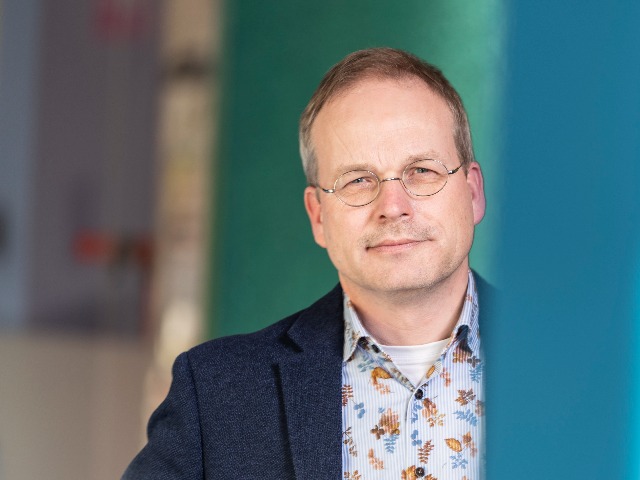CONTRAST - a multi-disciplinary research into organizing regional actue stroke care

FEB researchers Durk-Jouke van der Zee and Erik Buskens joined forces with their colleagues Maarten Lahr and Maarten Uyttenboogaart from the University Medical Center Groningen (UMCG) to work on new solutions for organizing regional acute stroke care, thereby participating in externally funded projects.
“Acute ischemic stroke is the second leading cause of death and a leading cause of long-term disability world-wide. Acute brain infarction is caused by a blood clot obstructing blood flow in the brain. The clot deprives downstream brain tissue from oxygen and glucose, leading to neuronal cell death. The longer the clot blocks flow the more damage is done, resulting in (severe) disability and possibly death. In short: “time is brain”, explains Maarten Uyttenboogaart.
Not surprisingly, stroke care organization is recognized as a main determinant for patient outcomes as it impacts the time from symptom onset to start of treatment. By bringing in, applying, and extending concepts and methods from operations management, operations research and epidemiology the team seeks to improve regional stroke care organization.
Current efforts: CONTRAST project
The FEB/UMCG research team participates in the Dutch nationwide CONTRAST1)2) project sponsored by the Dutch Heart Foundation and several companies (€ 14 M). The COllaboration for New TReatments of Acute Stroke (CONTRAST) consortium aims to improve the outcome of patients with a stroke. The consortium consists of researchers from all academic hospitals and associated universities in the Netherlands. Furthermore, many (major) hospitals and emergency medical services collaborate in the project. The development of this consortium is in agreement with the objective of the Dutch Heart Foundation in setting up a lasting national high quality consortium targeting stroke research.
CONTRAST merges health-based research on new stroke treatments with research on the organization and logistics of regional acute stroke care networks. The clinical partners will perform five large acute stroke trials to test novel treatment strategies. The FEB/UMCG team hosts the work package on the organization and logistics of the acute stroke care network (€ 600 K). Main focus of the work package is on new (cost) effective solutions for regional stroke care organization, thereby considering allocation of stroke facilities, patient routing and workflow management. Within the consortium the team works alongside health researchers with a focus on new stroke treatments.
New solutions
Durk-Jouke van der Zee describes the search for new solutions. ”We seek to improve patient logistics in two ways. Firstly, new concepts for organizing acute stroke care are (further) developed and put to the test using model-based approaches. For example, a drive-the-doctor model may reduce time to treatment by allowing to offer all stroke treatments at the same regional hospital: instead of transporting the patient to another hospital for advanced treatment, a doctor with the right expertise is driven to the regional hospital instead.
Secondly, we aim to strengthen model-based support in designing logistic solutions for acute stroke networks and assessing their cost-effectiveness. Until recently, clinical trials were the main vehicle in the domain for testing logistic solutions, while operations research methods hardly made an entrance. By using and developing these methods, especially (combined) simulation and stochastic models we provide a more efficient alternative for real-life tests as in clinical trials, allowing both research and clinical practice to benefit.”
More information:


